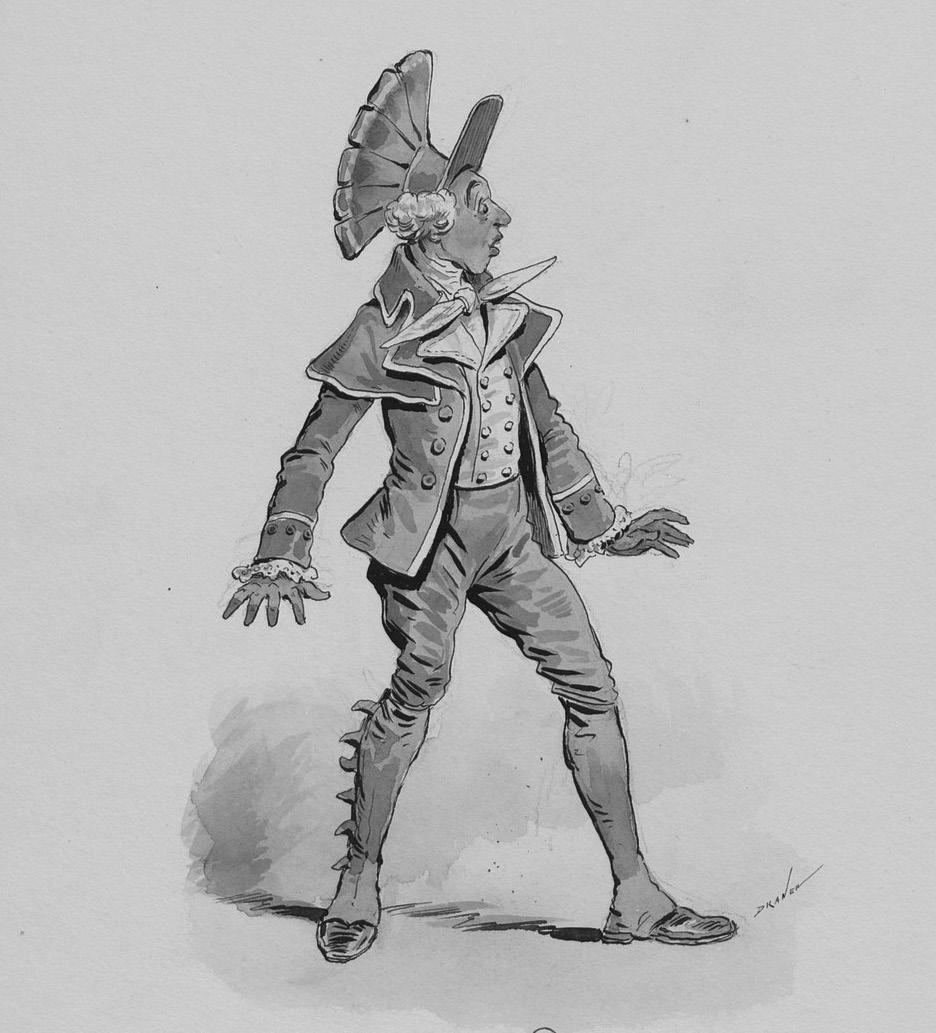
1 minute read
Programme note
Tréfeu (1821–1903) took on during the winter of 1868: La Princesse de Trébizonde. Despite advertisements in the Parisian press, Offenbach chose a more fashionable spa town and a different casino, the famous Baden-Baden.
It took Jacques Offenbach (1819–80) many years of hard work and effort to gain recognition, but his success, when it came, was lasting and, despite several tough years, never waned, neither during his lifetime nor after his death. By way of evidence, pieces like the ‘Infernal Galop’ from Orphée aux Enfers (Orpheus in the Underworld) and the Barcarolle from Les Contes d’Hoffmann (The Tales of Hoffmann) have made their way into our collective memory and becoming part of us, whether we are music-lovers or not.

The flip-side of this high regard is that much of his output, consisting of over 650 works, is unfamiliar to the general public. Sadder still is the false, almost caricatural image that posterity has of the composer of La Vie parisienne. There is no doubt that certain opéras bouffes with librettos by Meilhac and Halévy have overshadowed La Princesse de Trébizonde (The Princess of Trebizond) which, dramatically and musically, deserves as much acclaim as La Belle Hélène or La Grande-Duchesse de Gérolstein
In 1869, Offenbach was one of the most widely performed French composers in the world. He was fond of saying that his passions were women, gambling and cigars, deliberately omitting his predominant passion (as Don Juan would say): work.
Offenbach mainly assuaged his love of gambling in the spa town of Bad Ems. And it was Aimé-Isidore Briguiboul (1814–90), director of the Casino there, who commissioned him to write a two-act operetta, which the librettists Charles Nuitter (1828–99) and Etienne
Due to time constraints, Offenbach was forced to recycle several numbers from an opéra-comique, La Baguette, that was almost finished but had never been performed. He instructed Nuitter to fit new verses to his old manuscript. As usual, the composer made faster progress than his librettists and he ordered them to join him at his house in Étretat, where he could compose at ease. He wrote to Nuitter: ‘In heaven’s name, come to me with Tréfeu. In two days, the piece will be done and well done at that. If it were just Baden-Baden, I wouldn’t plague you so much. But the piece must fall squarely on its feet in Paris to be performed at the opening [of the BouffesParisiens] – that’s the most important thing and, for that, there isn’t a moment to lose.’ Or in another letter:









